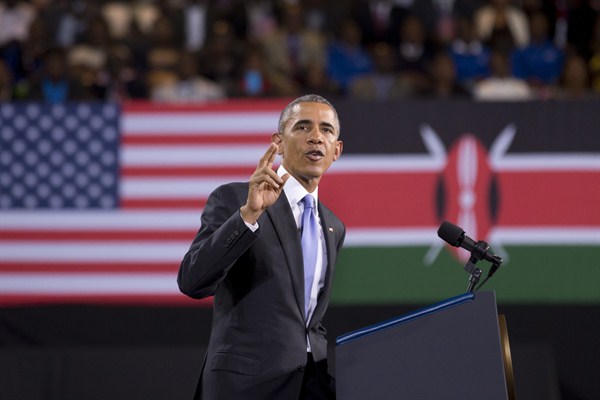On his current visit to Kenya and Ethiopia, U.S. President Barack Obama has been wise to promote stronger business ties between Africa and the United States. The U.S. has lagged behind rivals, notably China, when it comes to commercial engagement with the continent. The Obama administration is well aware of the problem, and the president's trip is not the first attempt to fix it. But meaningful progress will require Washington to go beyond rhetoric and actively help to enhance governance frameworks that currently prevent U.S. companies from competing effectively in many African countries.
For several years now, the Obama administration has sought to draw attention to Africa’s commercial potential. On her visit to Senegal in 2012, then-Secretary of State Hillary Clinton noted outsized GDP growth rates across the continent and touted American companies as effective partners for ambitious development plans. One year later, when Obama visited Senegal, South Africa and Tanzania, he held meetings with U.S. business leaders and announced Power Africa, an initiative to catalyze private U.S. investment in Africa’s energy sector. In 2014, Obama hosted the U.S.-Africa Leaders Summit in Washington, attended by numerous African heads of state, at which he announced a Doing Business in Africa Campaign, aimed at promoting private-sector engagement.
Obama’s trip to East Africa included similar initiatives. In Kenya, he spoke at the Global Entrepreneurship Summit and encouraged U.S. investors to take note of the innovative business ideas emerging from many African companies. He also signed various new agreements with Kenya designed to facilitate additional U.S. trade and investment. In Ethiopia, although Obama was more focused on regional security issues, he still met with business leaders and sought ways to strengthen commercial ties.

